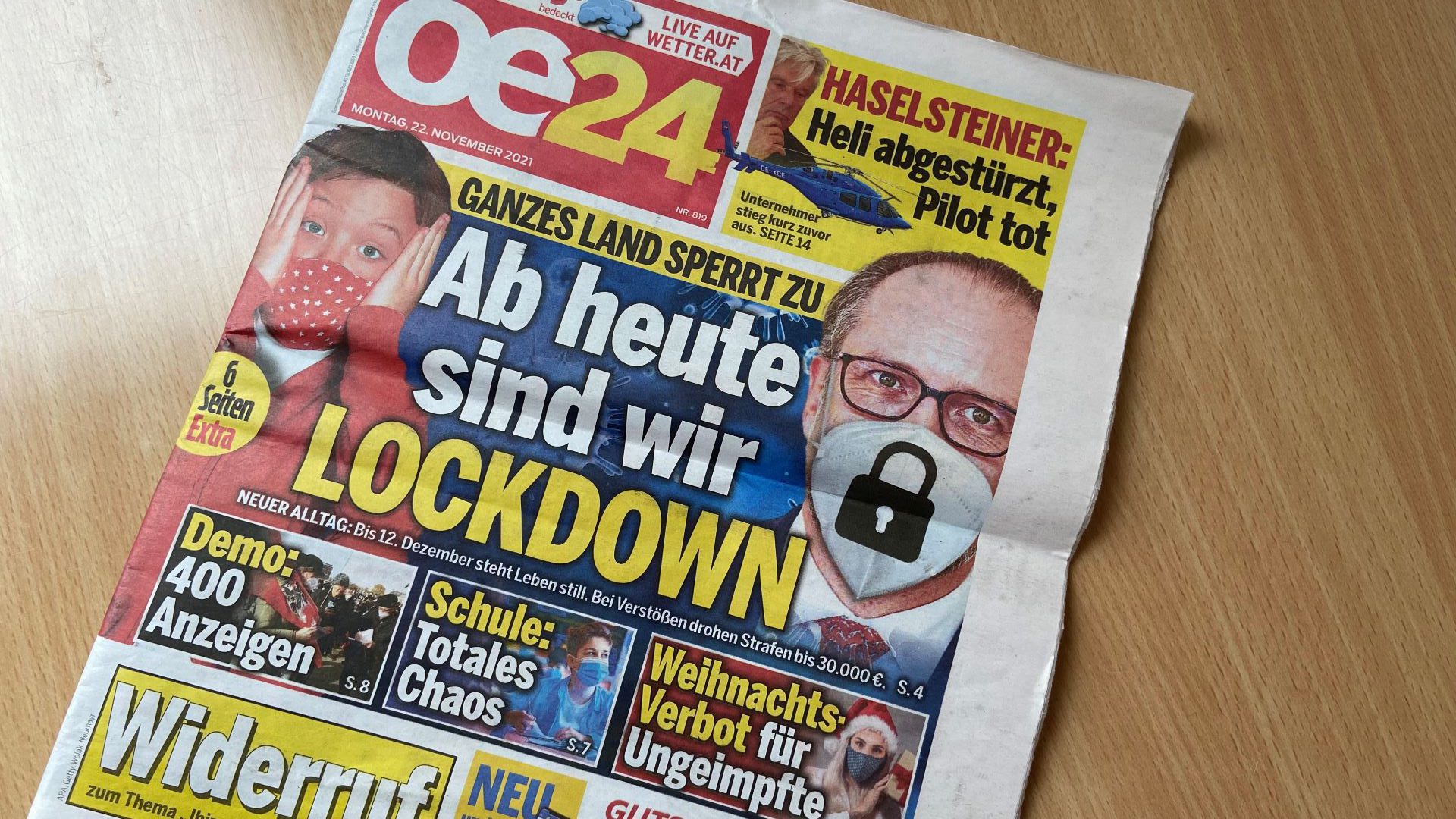On Wednesday, April 8, 2020, Andrés Moral Martín, National Coordinator for Students For Liberty UK, hosted Dr. Steve Davies, of the Institute of Economic Affairs, to give a webinar on the topic of the COVID-19 pandemic and its aftermath. Dr. Davies, who has previously appeared at ESFL’s annual LibertyCon and contributed to the Learn Liberty series, offered his perspective on the potential political and economic fallout resulting from the current crisis.
Firstly, Dr. Davies warned against apocalyptic thinking, which he regards as particularly counterproductive. He argued that the future is not a blank slate, and that projection will only contribute to fulfilling pessimistic predictions. However, he does believe that, as a result of this unprecedented global crisis, there will be some significant changes.
He does not expect these changes to consist of anything completely novel, but instead an acceleration of changes that have already been happening in recent years. The changes brought about through times of crisis will reflect the current political trends, whether they be pro-liberty or authoritarian.
What is likely to happen in the aftermath of the crisis, according to Dr. Davies, is a rise in nationalism, particularly cultural nationalism, alongside a significant reduction in long-distance travel, at least for the near future. He predicts some major travel restrictions to last for about two years, with countries seeking to heavily control inbound travel, perhaps with mandatory quarantines upon arrival. This decline in travel would in turn lead to a decline in cultural connectivity.
He believes that economic nationalism will become more prevalent, with an increase in protectionist policies and a move away from long-distance supply chains. Political nationalism would also stand to gain from this.
Dr. Davies argued that a weakening of the long-established international order and its institutions looks likely, especially considering that their influence was already in decline before the current crisis. Instead, he sees the potential for a relative strengthening of subaltern powers, such as China, Russia, and India. The European Union will likely face the prospect of increased internal division and tension. He sees Iran as having a very uncertain future after completely mishandling the situation.
He asserted that the U.S. government’s response to the pandemic has been particularly terrible, with a major economic crisis on the horizon, although there is a case to be made that this was already a probability regardless of it being accelerated by the current crisis. The economic crisis following the COVID-19 pandemic will not be due to any demand shock, but due to the supply side taking a massive hit that is deliberately induced by government action.
With GDP plummeting, governments are hoping for a strong rebound after the crisis, although the probability at this stage is that the crisis will be prolonged. Dr. Davies believes this will take at least 18 months. Even if the infection rate of COVID-19 dips during the summer, there is the likelihood of a subsequent second wave, which could be more devastating than the first wave.
Dr. Davies warned that the financial sector is going to be particularly badly affected, with a significant dip in investments, an enormous problem of global debt, and mass defaults. He believes that many governments will consider debt forgiveness as an option, although this will be severely damaging to creditors.
One observable trend in many Western countries is an ongoing political realignment. The traditional center-right is increasingly veering away from classical liberal economics and instead towards a Bismarckian paternalistic conservatism. Those on the left will be pulled in two directions, with some likely to side with the new right. Dr. Davies believes that in two years time, we should begin to see a clearer liberal opposition.
He expects to see the emergence of a new model of governance. However, this will not be based on China but instead on other East Asian countries such as Singapore, Taiwan or South Korea. This would involve lower government spending as a share of GDP, but would still consist of an active ‘strong’ government. Particularly in the Anglosphere, he believes that we will see major welfare reforms, although it is difficult to predict exactly which form this may take. Alongside this, he believes that there will be a revival of state ownership and production, although at the same time expects a decline in regulations such as licensing laws.
It is likely that certain intellectual trends will come to an abrupt halt. Dr. Davies suggested that there is a chance of postmodernism and identity politics losing relevance or perhaps even vanishing entirely. He believes that ideas such as environmentalism could see a significant surge. In any case, there will be much political rethinking amid the emergence of new ideological categories.
Dr. Davies argued that this could lead to a reorganizing of classical liberals, with those who claim the term when their main goals are focused entirely on focused on opposition to the left being found out, along with the many who have joined the ‘cultic milieu’. There will certainly also need to be a rethink of the liberal project set out at the Bretton Woods Conference in 1944.
Liberal ideas will no longer be ‘centrist’, but one of the poles of the political spectrum. He asserted that those of us promoting the ideas of liberty need to be increasingly clear about what we stand for. We are at the end of a liberal project that he sees as needing a new direction, arguing that economics should become less central to pro-liberty ideologies, with the focus instead being placed on individual liberty. He stated that he is a fan of capitalism because of its compatibility with individual liberty, and not the other way around.
In about two years time, there will be a significant debate reckoning, and we must be ready for that. To do so, we should revisit what happened in the period from around 1946 to 1950. We need to ensure the scrapping of all authoritarian measures left behind from times of crisis. For instance, in the aftermath of World War II, there was considerable debate over whether or not to abolish rationing, which was eventually won by the pro-liberty side.
We also need a long-term strategy. According to Dr. Davies, this should focus more on metapolitics and cultural politics, areas in which pro-liberty arguments have been lacking in recent times. The current crisis is pushing us further down a negative road that we were already on, therefore emphasizing the pressing need to change this trajectory.
The first question from the webinar’s audience concerned the issue of whether antibody testing could remove the need for quarantines. Dr. Davies responded that, so far, there are too many false negatives, so we need to err on the side of caution. He highlighted the fact that the population of the countries most successful at keeping the spread of COVID-19 under control will have nowhere near herd immunity, thus being highly at risk should they come into contact with an infected person.
The next question involved the likelihood of some form of universal basic income being introduced in the near future. Dr. Davies highlighted two major forms of welfare, those being Bismarckian social insurance and income transfers, often involving means testing. These means-tested systems, which are common throughout the Anglosphere, are going to be under serious pressure. UBI will be a matter of considerable debate, but the idea will face pushback from both the left and right. He believes there might instead be a move towards universal provision of certain services.
In terms of where some of the economic fallout from the pandemic may be most devastating, Dr. Davies highlighted the prospect of massive capital flight from developing markets. He believes that the spread of coronavirus is going to have particularly grim consequences in countries where casual work is most prevalent.
Concerning the idea of legal consequences for the Chinese government over their actions early on in the crisis, Dr. Davies stated that this would be a complete waste of time. However, the Chinese government will already have made itself very unpopular with the international community over their mishandling of the initial outbreak.
When asked what the impact might be on the Schengen Area, he argued that the project is already essentially dead, with national governments showing a complete lack of trust in each other’s response to the pandemic. He believes that it is unlikely we will see a return to complete freedom of movement within Europe over the next couple of years. Dr. Davies also highlighted some other pressing economic concerns, including a liquidity crisis and a high risk of inflation after about a year with global supply chains still recovering.
On the question of whether we should call for an immediate end to the lockdowns put in place in many countries, the answer from Dr. Davies was a definite no. He believes that, although we have no firm idea of what the death rate from COVID-19 may be, we know that the death rate is probably underestimated, deaths occurring outside of hospitals will often not be recorded in the statistics. If we consider that the death rate is likely in the region of around 0.6 to 0.7 percent, that is still significantly more deadly than any regular seasonal flu.
He argued that, without the availability of an effective vaccine, herd immunity is the only long-term solution, although this must be spread out over time if we want to avoid overwhelming healthcare providers. Although he believes that voluntary measures would ideally be preferable to lockdowns, social distancing only works with people’s cooperation. One thing we should stand firm on is that lockdowns should never be any longer than absolutely necessary.
During the COVID-19 pandemic, Students For Liberty are offering a range of online events as part of our #StayHomeSpreadLiberty campaign. Make sure to check out our upcoming events, which you can find below, along with recordings of previous events.









